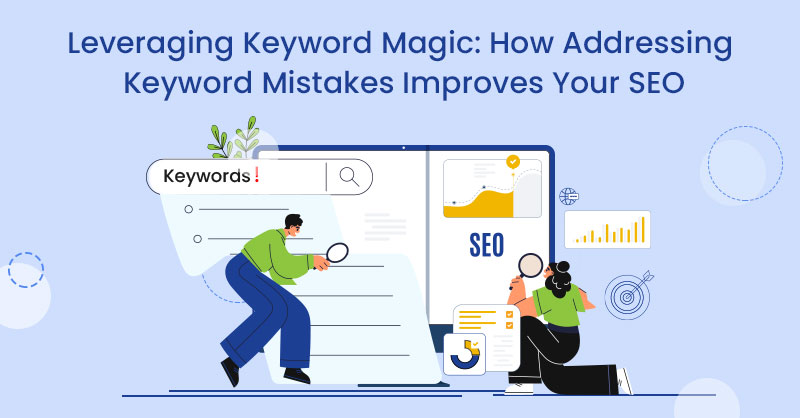The world of digital marketing is ever-changing and complex. From new changes to Google’s algorithm to increasing organic competition, website owners have a lot to consider - and worry about - when it comes to their online performance. To some, the technicalities and complexity of search engine optimization (SEO) can be confusing to understand and implement, especially if they do not have the personal time to dive into how it works. Anyone with a website knows how hard it can be to try and build an edge on the competition, especially if your competition is bigger, more proactive, and more established online than your brand.
Many businesses find themselves in this situation: how can you get ahead of competitors that have more money, talent, and resources?
The answer: you need to do something they are not, or at least, something they are not taking full advantage of.
What can that be? Old-school journalism.
Why Journalism is Important to Online Brands

In digital marketing, marketers, brands, and business owners can often get consumed by highly technical online strategies or the latest, flashy strategy or cool idea that everyone is jumping on. While there’s nothing wrong with trying to stay ahead of the curve and exploring new and exciting tools and strategies, sometimes the easier, simple strategies that are older get forgotten or ignored altogether, including journalism.
Journalism is the act of gathering, analyzing and presenting information on a given topic. If you create blogs on your website, you are already engaging in one form of online journalism, however, this is just one method. If you promote content on social media, that is another form of journalism, just relegated to the online media sphere instead of a newspaper or magazine.
Many of the tasks website owners or their marketers take to create and promote content are a part of journalism. By incorporating more journalistic practices into your content marketing strategy, you can improve your brand exposure, drive traffic to your website, and increase conversions. Let’s explore what those are.
How to Use Journalism to Improve Your Digital Marketing
Improving Brand Trustworthiness
Any reporter or journalist worth their paycheck is familiar with conducting interviews with subject matter experts. You should not be shy about trying to incorporate this into your content marketing strategy, especially if you have some staff members that can do the heavy lifting. While you are a subject matter expert, effective and compelling content will need more than one source.
Putting yourself or your brand as the only subject matter expert or opinion in your blog content is something your visitors will likely notice, especially if your business is B2B since each prospect will need more convincing to convert. You may have some compelling and interesting content, but if readers think your content is biased, that content is not going to be effective; and it likely won’t convince the visitor to travel further down the sales funnel and convert. They will likely visit other websites with content on the topic (likely your competitors or a source they can trust more) to verify the information.
This is one area where old-school journalism can help. Getting in contact with a subject matter expert from a non-competitor, like a regulatory body of your industry, and getting a quote you can add to your content will boost its credibility and trustworthiness. This not only helps portray your individual piece of content as more valuable and objective but the content across your website as a whole.
Most online users are looking for answers to their questions, and Google is trying to find the best ones for each query. By using interviewing as a way to get experts' opinions or analyses on a given topic, you are making your content more valuable to all, and thus more likely to rank higher, drive more traffic, and boost conversions.
Providing relevant sources to the topic your content is about will also boost your trustworthiness and content effectiveness. It’s one thing to read a thought-provoking article, but one with plenty of authoritative sources to back up any facts, statistics, and declarative statements will make the main message or takeaway much more effective and long-lasting in the mind of the reader, increasing the chances they come back for more information and move down the sales funnel.
Generating More Backlinks
Another side of incorporating interviewing into your content marketing is the additional backlinks it can generate. As many digital marketing studies have pointed out, backlinks are a vital component of SEO. Ordinary backlinks (backlinks that are not set to no-follow) are viewed as votes of confidence by Google. The more backlinks your website gets, and the more backlinks you get from credible websites, the higher your website will rank for relevant keywords.
Interviewing is a great way to establish a relationship, one that can easily lead to backlinks and traffic for your blogs and other content. Most experts are happy to get their name, experience, and professional credentials shared online. Once an expert is featured in your content, they have an incentive to help promote it, not necessarily for you, but to promote their career.
By simply asking the expert to share a link to your content on their website and/or social media, and other online platforms, you can ensure that as soon as your content is published, you will get backlinks and relevant traffic courtesy of your interviewee. Your content will get instant exposure to their audience, many of whom are likely to be potential customers of your business. Try to pick experts to interview who have social media accounts (with some followers) and/or a website or online platform with a good amount of traffic.
Getting Your Brand Promoted
Online news websites and magazines can be great places to get quality backlinks to your website and promote your thought leadership. You (or a staff member) would have to be willing to participate in interviews with reporters, which can be annoying but offer great opportunities to increase your brand’s exposure and credibility. The wide range of different online news publications available to you is staggering, and even if you work in a highly technical industry, you can bet there are relevant publications that write about your industry or those related to it.
Most interviews will not be very long, and the publication will often provide a backlink to your website. Readers who click through to your website will be much more likely to convert than readers who just happen to come across your website.
If you would like to get interviewed you can reach out to publications directly, or use platforms that connect reporters with subject matter experts. One of the most popular platforms for doing this is HARO (help a reporter out). You can sign up for free and get notified when reporters are looking for experts to comment on topics they are writing about. HARO and other platforms like it provide you with easy ways to get in touch with journalists who want to share your opinion and brand information in exchange for your insights or analysis on a given topic.
Many mainstream publications use platforms like HARO to expedite their work. From Forbes to USA Today, you can get your knowledge and your brand featured in articles that can be seen by thousands of readers who are interested in topics relevant to your business. Along with that, getting a backlink from such popular and long-established platforms will greatly boost your website’s domain authority, and thus, your organic search rankings in the process.
Professional from Good Spelling & Grammar
One of the key tenants of good journalism is the proper use of language.
When it comes to SEO, Google’s algorithm can understand basic spelling and grammar mistakes for commonly used words (after all, many people type in misspelled words in Google searches). However, if your industry deals with complex topics or terms then spelling mistakes can hinder Google’s ability to understand the content, reducing its ranking power for queries regarding relevant topics.
From a conversion optimization perspective, poor spelling and/or grammar indicates a lack of professionalism and attention to detail on the part of the brand, decreasing the likelihood that a visitor will make a conversion or view the brand in a positive light.
The good news with modern technology is that there is an abundance of writing tools available online, many of which are free, that can be easily used to find most spelling mistakes and quickly correct them. It should be worth noting that these are not all perfect, and occasionally make mistakes so you should still read all new content thoroughly before publishing.
Effective Content Marketing and Journalism Go Hand-In-Hand
Too often we are so focused on the next big thing, the sexy new idea or strategy that everyone is raving about, the new technique that is in vogue when we try to optimize digital marketing performance, especially regarding SEO. We forget or discard older, more simplistic tactics and strategies that can still achieve success. We often hear about how old-school journalism is on its deathbed, but a closer look at long-standing digital marketing strategies that have remained successful have their roots in journalism, and require journalistic strategies to achieve.
If you want your content to be more effective at driving traffic and helping you rank for queries that are important to your business, you should think about journalism, and how, if at all, you are incorporating those practices into your content marketing strategy. Sometimes, old-school tactics can still pack a punch, and none more so than with journalism in digital marketing. If you’re looking to get ahead of the competition, contact our digital marketing experts today!







on
Journalism is also an important factor in blog writing and posting. as the world is giving priority to content. It’s the right time to jump into Journalism.